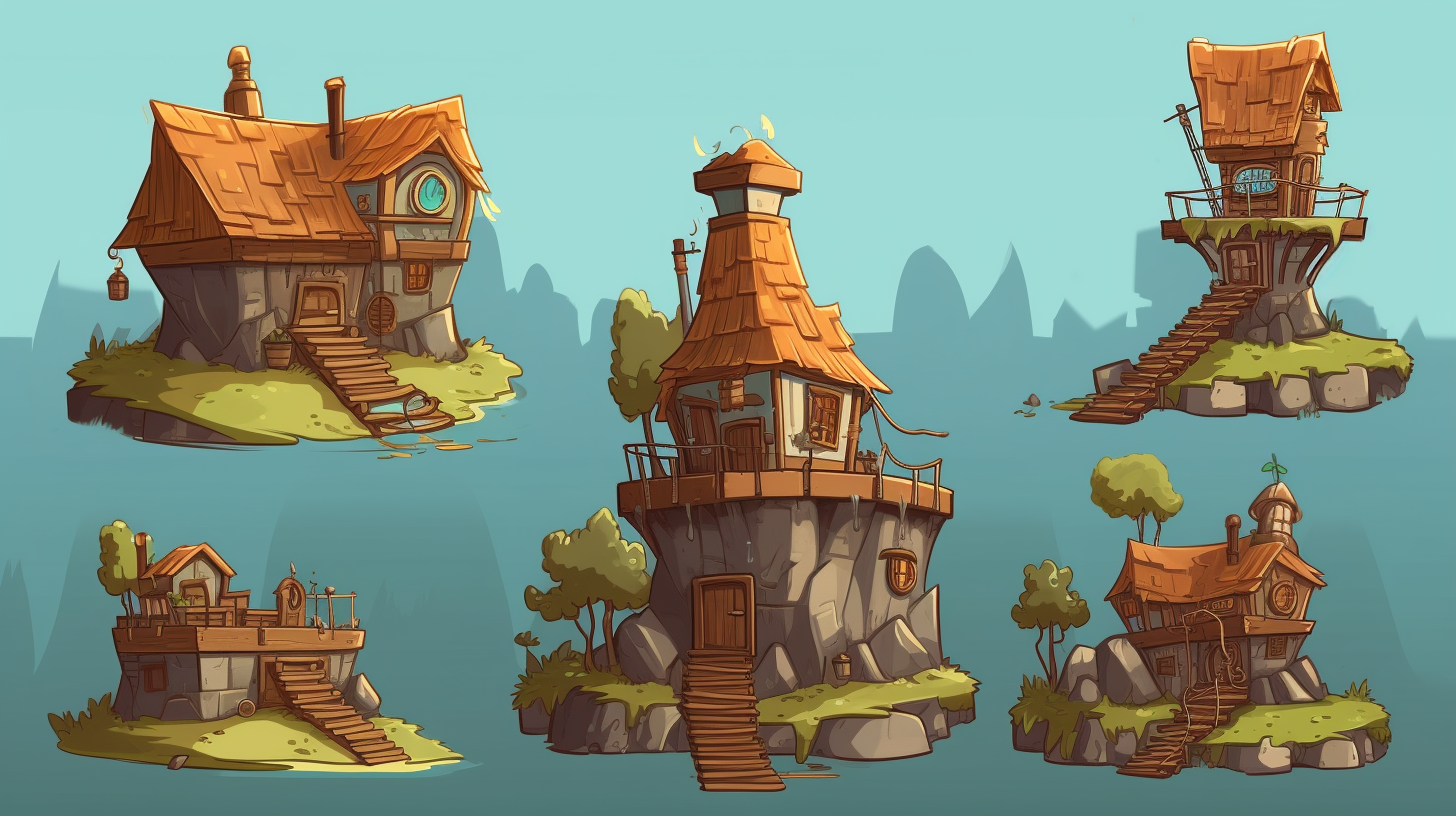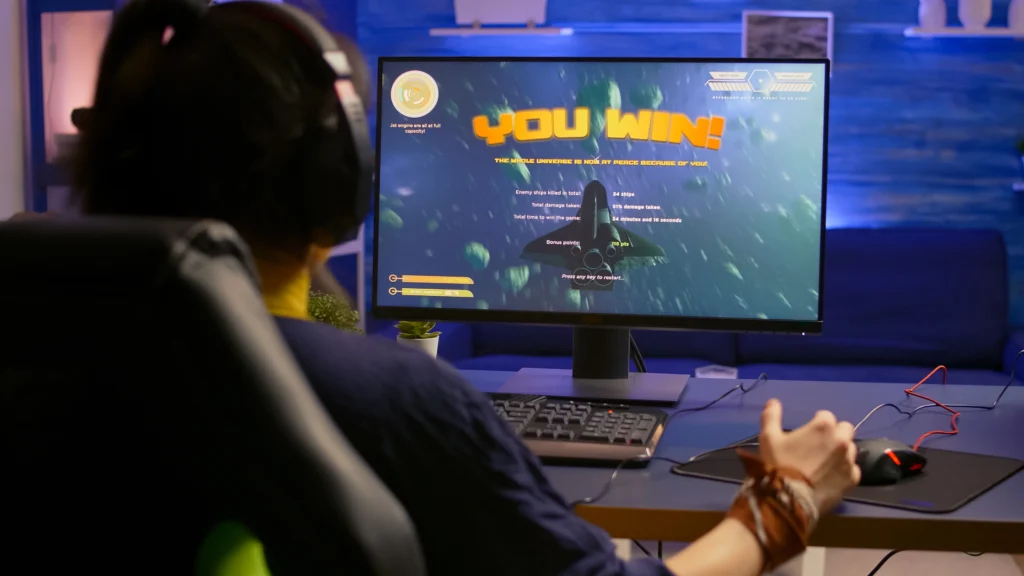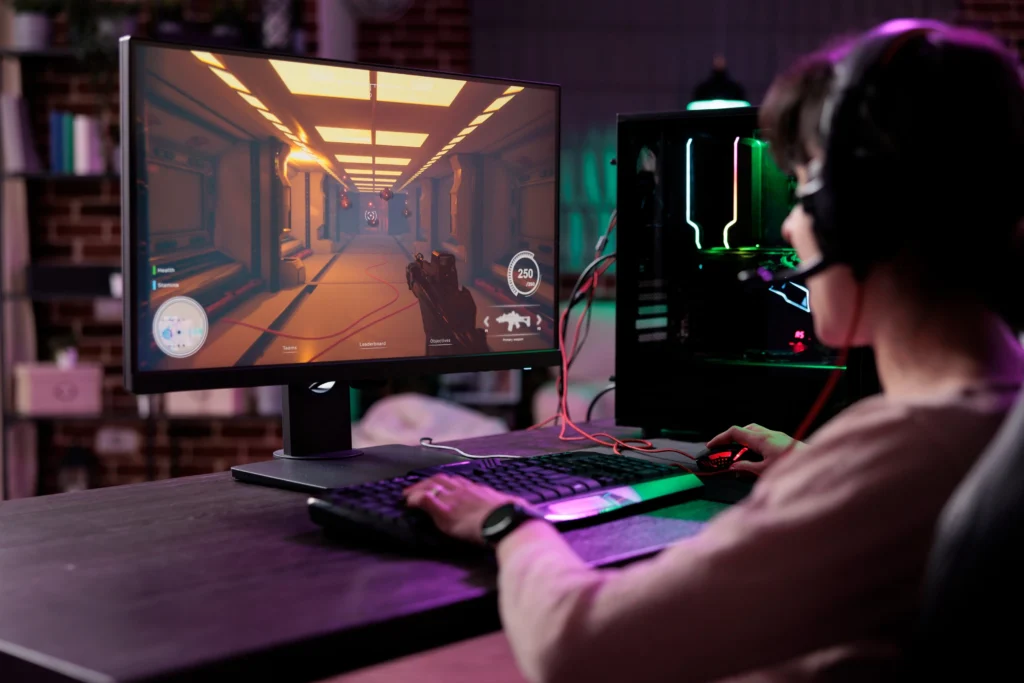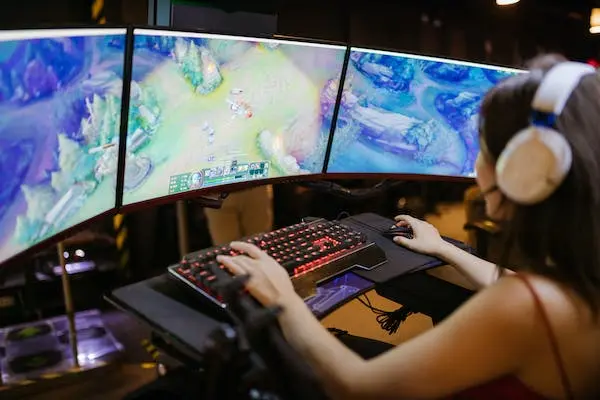Top 3 Unity Alternatives: Game Engine Comparison Guide

In the ever-evolving realm of game development, choosing the right platform is crucial, similar to laying the foundation for your dream house. Recent changes in the landscape from Unity highlight the significance of this decision and why developers are looking for Unity alternatives. For indie game developers, platforms aren’t just tools; they’re the basis for every game. Unity’s decision to impose fees based on installs left many game developers at a crossroads, prompting a major reevaluation of Unity alternative game engines. And it raises questions around what platforms are best for indie developers.
In this guide, we’ll explore game development tools, alternatives, and the merits of each option.
Table of Contents
The Unity Update
Unity, one of the main game engines for indie developers, is facing scrutiny and skepticism due to a significant shift in its monetization model. Specifically, they introduced fees based on the number of game installations, which raised concerns among developers. Under this new model, developers are required to pay fees for each instance of game installation, including reinstalls and installations on the same or multiple devices. What is more alarming is that these fees are applied retroactively, which impacts not just future games, but games that were previously released and may have seen some success. These changes in Unity’s policies have the potential to become a financial catastrophe for many developers.
Even in these circumstances, there is still a silver lining. While Unity’s decisions shocked the industry, it opened the door to exploring other robust platforms that were previously ignored in favor of using the most popular game engines. Due to these announcements, developers want Unity alternatives for their games. Several open source engines are free Unity alternatives that have gained steam as developers feel more in control of their work. Ultimately, developers want platforms where they feel that rules can’t be changed arbitrarily, and they don’t face unexpected costs during or after development.
The news has also magnified the importance of trust in platforms. There are multiple tools that provide many different features that Unity has, like Unity Cloud alternatives. Other features that Unity provided, like alternatives for Visual Studio, can also be found elsewhere. Developers are not only looking for a Unity Engine alternative, but also a platform that has their best interests in mind.
Unity Alternatives: What should I use instead of Unity?
There are so many development platforms out there, each with its own unique features and advantages. With numerous alternatives to Unity, let’s explore the offerings and strengths of each platform:
#1. Moddio: Open Source Multiplayer Engine
-
- Why consider Moddio?: Moddio, a free Unity alternative, is gaining popularity among indie developers. With a no-code game editor, Moddio simplifies multiplayer game creation and makes it easy to get started. What makes Moddio standout is that it is completely browser-based so it eliminates the need for downloads. Additionally, the built-in with multiplayer features (server orchestration, netcode, chat, moderation, etc) and monetization capabilities sets Moddio apart as an exceptional choice for developers seeking an open source Unity alternative with everything needed for a game already built in.
- Community Building: A significant strength of Moddio is its focus on community building and multiplayer game ceration. Creators can easily connect with their audience, fostering rapid game improvement and evolution.
- Free to Use: Moddio’s tools are all completely free to use. With its open source engine, Moddio wants to ensure transparency and build trust with the game development community.
#2. Godot Engine: Open Source Excellence
-
- Why Godot?: Often regarded as one of the biggest alternatives to Unity, Godot boasts a flexible scene system and visually appealing graphics. As a unity open source alternative, Godot is free and community-driven. It has a growing community of contributors and developers.
- Learning Curve: While Godot is powerful, there might be a steeper learning curve compared to Unity. But for those seeking a free Unity alternative with robust features, Godot is a worthy contender.
#3. Unreal Engine: High-Quality Visuals
-
- Why Unreal?: Known for delivering top-notch graphics and quality, Unreal Engine is a favorite for developers targeting AAA game quality. If visuals are a priority, Unreal is a strong unity engine alternative.
- Monetization Model: Unreal takes a percentage of game revenues after a certain threshold. This ensures developers know upfront about potential costs.
- Other Alternatives: There are plenty of other Unity cloud build alternatives and alternatives to Unity visual studio as well. Developers have a multitude of options that they can explore
Ultimately, developers should consider their project needs, desired features, and budget.
The Benefits of Open-source Platforms
Open source platforms are some of the standouts among the best Unity alternatives that game developers are considering. Here are some of the advantages of open source game development engines.
- Freedom and Flexibility:
- Open-source platforms offer far more freedom. Developers have the liberty to modify, adapt, and innovate the engine on their own. Open source alternatives for Unity provide much more flexibility in terms of customization and functionality.
- Cost-Effective:
- Many of the open source engines are free Unity alternatives. They don’t require licensing fees and costs are more transparent, making it easier for indie developers to focus on game development and marketing.
- Collaborative and Community-driven:
- The open source alternatives to Unity offer a major advantage: the robustness of their communities. These engines benefit from the contributions of developers worldwide, who collaborate to improve the platform, exchange knowledge, and solve challenges together. This collaborative ecosystem helps to accelerate the development of the game engine.
- Transparency and Trust:
- Open-source platforms offer transparency. Every change, update, or modification is available for review for the entire community, ensuring no unpleasant surprises.
- Longevity and Future-proofing:
- Open-source platforms are not tied to the financial health or decisions of a single company. Even if the original creators stop supporting it, the community can continue to develop the platform. This ensures longevity and a level of future-proofing.
- Diverse Ecosystem:
- With tools and plugins continuously being developed by the community, developers have access to a rich and diverse ecosystem. This means that it’s even easy to rebuild Unity extensions, like Unity alternatives to Visual Studio, or Unity Cloud.
Open-source platforms offer a unique combination of flexibility, community support, and transparency that may be absent in proprietary engines. By choosing these platforms, game developers gain greater control, collaboration, and clarity. Not only do they serve as free alternatives to Unity, but they also align better with developers’ ethos.
Cost Considerations
Even prior to the Unity news, game developers have always sought out cost-effective solutions. This is particularly crucial for indie developers, as every dollar saved can be reinvested into improving the game or marketing efforts. Therefore, free Unity alternatives are especially attractive. However, it’s important to consider more than just the upfront expenses.
First, it’s essential to recognize the long-term costs associated with any game development platform. For instance, while some engines might not have initial fees, they could tie developers to revenue-sharing models once their games hit certain success thresholds. Obviously this is what has been happening with Unity’s new fee structure based on installations. Paying a fee for every game install, especially retroactively, can dramatically shift budget estimations and eat into profits. Therefore, developers should consider the long-term financial implications when selecting a game development platform that is a Unity competitor.
It’s also important to consider integrated features. Developers want platforms that offer seamless integration of multiple services and extensions, like Unity Cloud build alternatives, without incurring additional expenses. Cost isn’t just about money, but it can also include time. If a platform can offer additional tools that reduce the time needed to build, test, and deploy games, these are also factors to consider in the overall cost.
When considering free Unity alternatives, it is crucial to weigh the trade-offs. While a completely free platform may lack certain advanced features, developers might end up spending extra on third-party tools or plugins. On the other hand, platforms such as Moddio offer robust features like built-in multiplayer options, including server orchestration, netcode, chat, and moderation. This not only simplifies the overall development process but also proves to be a more cost-effective choice in the long run, particularly for multiplayer games.
What Engine is Better than Unity?
The question of which engine is “better” is subjective and depends on the specific needs of the project. Unity obviously made a hard push with developers and became one of the industry standard game engines. Open source engines can provide similar levels of functionality. Game engines, like Godot, have benefited considerably from the Unity news. With good reason; open source engines offer a comprehensive framework for game development without the overhead of licensing fees, and features are driven by the community.
Godot vs Unity
Godot has been one of the biggest open source communities among the Unity alternatives. Both engines have their unique strengths and the right choice often boils down to the specific requirements and goals of a project. Let’s delve into some key considerations.
Being open source means that developers have a full view of the underlying code, and therefore far more customization options. This transparency also ensures that if there’s a specific feature or necessary modification, it’s possible to build without waiting for an official update or navigating through potential licensing issues. Plus, the community-driven approach means that Godot benefits from the collective expertise and contributions of its global user base. This can mean faster bug fixes and an evolving array of features.
Unity, on the other hand, is one of the giants in the game development industry. Its asset store, mature ecosystem, and extensive documentation make it a go-to for both new and experienced developers. Unity’s interface is arguably more polished, and its vast library of tutorials and resources can be invaluable for those just starting in game development. However, the new fee structure could be catastrophically expensive in cost for developers..
Although the fact that Godot is a free Unity alternative is undeniably enticing, one must take into account the learning curve it entails. Unity’s immense popularity grants it a larger community, a greater abundance of tutorials, and a wider array of available assets. However, Godot distinguishes itself with its unique design philosophy, employing a scene-based approach in contrast to Unity’s more object-oriented method. This distinction may result in a more intuitive design experience for some, while serving as an initial obstacle for others.
Essentially, distinguishing between the engines is not straightforward. Rather, it is crucial to consider the specific requirements of each project, developer preferences, and long-term objectives when deciding which engine to opt for.
Why Moddio Stands Out as a Strong Unity Alternative
Moddio is a newer platform with a fresh, dynamic approach to game creation that resonates with both new and seasoned indie developers. Moddio is more than just a Unity engine alternative; it’s a platform built with dedication to community and a deep understanding a developers’ nuanced needs.
Moddio offers an open source game engine, serving as a free alternative to Unity. It provides all the necessary tools for crafting multiplayer games, such as netcode and server orchestration, without any expense. Typically, building these features from scratch would consume months of valuable time. In addition, Moddio includes social features like moderation, chat, and friends/followers, enabling direct interaction between developers and players. Consequently, indie developers, who often face financial constraints, can allocate their resources towards perfecting their games rather than grappling with costs.
Moddio’s game engine, being open source, frees developers from the limitations of company-imposed features. Instead, like Godot, it operates under the guidance of the community, leveraging contributions from its members. Moreover, the code is open for anyone to view, allowing for complete transparency,
Moddio’s design philosophy prioritizes ease of use. This not only benefits novice developers without coding knowledge or game engine experience but is also valuable for seasoned developers who want to avoid spending months on redundant backend infrastructure for each game. By streamlining these processes, developers can dedicate their efforts to enhancing gameplay, fostering community, and growing their game audience.
In summary, Moddio presents an excellent option for individuals who want a robust and community-driven alternative to Unity, all while being free of charge. Moreover, it caters to developers who prioritize fast game development rather than investing valuable time in building backend infrastructure.
Conclusion
For game developers, the abundance of options can be overwhelming, and the list keeps expanding by the day. However, selecting the perfect engine is not merely picking a tool; it’s about finding a platform that aligns with your vision, aspirations, and requirements as an indie developer. In our analysis of game engines, we delved into Unity, Godot, and Moddio. It’s crucial to choose a platform that empowers you, fosters growth, and prioritizes your needs.
Feel free to explore Moddio and take advantage of our range of free tools. Dive into our Github documentation to access our open-source engine, or watch our tutorials to get started. Regardless of which game engine you choose, we encourage you to unleash your creativity and bring your imagination to life.



